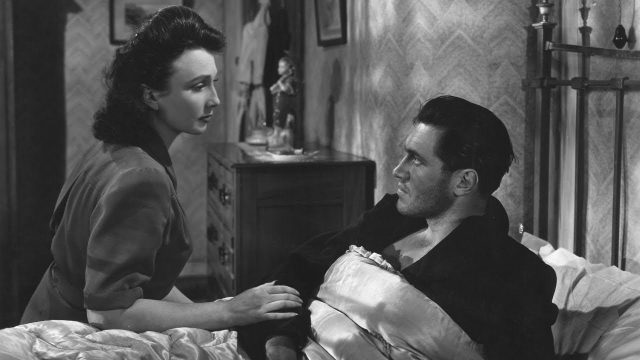Monday Movie: It Always Rains on Sunday, by David Bax

Robert Hamer’s It Always Rains on Sunday is, more often than not, advertised or presented as a noir crime film. Certainly the most common image associated with the marketing of the film–a dangerous-looking man (John McCallum) with his hand clasped over the mouth of a terrified woman (Googie Withers)–suggests sinister content lies within. That impression isn’t wrong, per se, but it means that the true nature of It Always Rains on Sunday–a slice of life tapestry of a day in the life of a working class London neighborhood–remains a surprise for most first time viewers.
Still, the main plot definitely hews to crime trappings. McCallum’s Tommy Swann has just escaped from prison. He needs a place to hide out and so he shows up at the home of his former fiancee, Rose (Withers), now married to another man and living in a cramped house with him and his two grown daughters. Rose is not willing at first but her dormant sympathies for Tommy are awoken, as is their physical desire for one another. Meanwhile, people in the neighboring streets run businesses, carry on affairs, plays darts at the pub and find other ways to pass a rainy spring Sunday.
It Always Rains on Sunday is an Ealing Studios film. The outfit is, of course, best known for comedies and Hamer himself would go on to direct arguably the best one of those, Kind Hearts and Coronets, two years later. But, while much of the movie has a warm humanism, It Always Rains on Sunday is very far from being funny, increasingly so as it goes on, culminating in a powerfully dark and heavy finale. What do you expect? It’s a movie about post-World War II anxieties. Turns out it’s a noir after all.






























